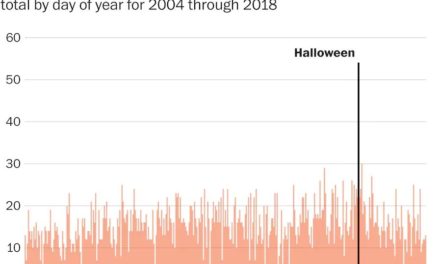The slash and burn political tactics of the Shelby County Board of Education is doing nothing to win points with Shelby County Mayor A C Wharton, who recently ordered the Office of Planning and Development to conduct a complete evaluation of school needs in the southeast county.
There’s three inviolate rules in county government. When someone says it’s not about sex, it always is. When someone says it’s not about money, it always is. And when the county school board says it’s about the kids, it’s always about the developers.
Another tell-tale sign in politics is when the opposition to your position is not content to argue the facts. Instead, they set out to decimate anyone who challenges their position or stands in the way of their pet projects.
That’s the posture that the county school board routinely takes. Finally, after standing with the county school system to his own political detriment at times, Mayor Wharton finally drew a line in the sand last week.
His request sounds imminently logical – do demographic trends in the southeastern county justify the new schools demanded by the Shelby County Board of Education? This seemingly innocent question touched off a firestorm of withering criticisms and personal attacks from county school board members and the mayors of the small towns against anyone who supports Wharton’s study.
Their reaction just seems strange on its face. If the county school board is right in claiming that county planners are wrong in their analysis of demographic trends and its analyses, why doesn’t the county board welcome the chance to air the issue publicly to show once and for all that it is right in calling for a high school, a middle school and an elementary school in the area? Why does it not seek the forum in which to make its case and remove the cloud that hangs over its school location decisions?
As we have written previously, the county school system makes its decisions on school sites in a vacuum, and it did again with its recent high school site recommendation. It failed to consult with the city school board although it expects the city school system to jointly build it, and it failed once again to confer with OPD which is required by ordinance to review the purchase of all property for public projects of Shelby County.
The number of questions has only increased as a result of Shelby County Board of Education’s howls of protest about the mere suggestion of an OPD study, but surely the board knew that the wiser course was to consult and review the sites and justifications for the schools with the city school district and county government.
It would have been such an easy thing to do, and all of this confusion and political contentiousness could have been avoided.
In fact, it hardly makes sense for the county board to build the schools in the first place. The southeastern portion of the county is slated to be annexed by City of Memphis within the next five years. Why shouldn’t the city school board build the high school to its specifications and lease it to the county?
As history shows, the road that’s being taken will result in the county board building a high school, then it will be annexed by Memphis and the city school board will spend millions and millions of dollars retrofitting it to its standards. And despite what you hear to the contrary from the county board, it is arguable that county schools are superior to city schools. In fact, a persuasive argument could be made that the county builds schools with no sense of place, with no common areas, with no community presence and little influence on community development, and with cut-rate operating systems that have to be replaced within years.
In addition, contrary to the county’s policy of warehousing students in high schools with 2,000 students, the city system is more in touch with national trends moving toward smaller high schools (a concept already embraced in many urban school districts and fueled by the bottomless bank accounts of the Gates Foundation). If the county school board is allowed to continue business as usual, it may well build a high school that the school board will reject in light of its different policy toward high schools.
A city-led project could be much cheaper for county government because of the Average Daily Attendance requirements. Every one with ears has by now heard that a $20 million county school actually costs more like $65 million because of state laws requiring that capital dollars be apportioned according to each system’s percentage of students.
So, if the city schools built the $20 million school, the ADA requirements are turned on their head, and the total amount would be about $28 million, not $65 million. There is every indication that the city schools system would agree to such an arrangement, but strangely, Shelby County officials say that the county system would oppose any such agreement.
Its determination to deliver a site near Hacks Cross and Shelby Drive, rather than a nearby site that is $2 million cheaper, has raised eyebrows throughout local government. At the same time, another school site decision is percolating just below the surface, this one a former Schnuck’s grocery owned by a developer with the last name of Hyneman. It is but more fuel on the fire for those concerned about developer influence on school site selection, not to mention the prevalent suspicions that racial motivations are driving the decisions on southeastern school proposals.
While the unholy alliance between the Shelby County school district and developers has been one of the unshakeable realities in local politics for 20 years, for the first time, county government has wisely broken from the parade that has offered up new county schools to drive sprawl and millions of dollars into the pockets of developers.
As expected, the mayors of the small towns are vociferously supporting the county board of education, taking the position that the school district should receive the blind support of Shelby County Government. Of course, these are mayors who faithfully argue for county government’s support for schools, but which never fund schools themselves, unlike Memphis taxpayers.
Mayor Wharton deserves the gratitude of every taxpayer who’s concerned about the massive county debt and the sprawl that’s caused it. This could be a historic time for this community if rationality and transparency were injected into the county school board’s decisions on school sites. It would be historic in lifting the veil on the influence that developers play in these decisions. In the end, if the mayor stands firm, this may be his administration’s finest hour.





